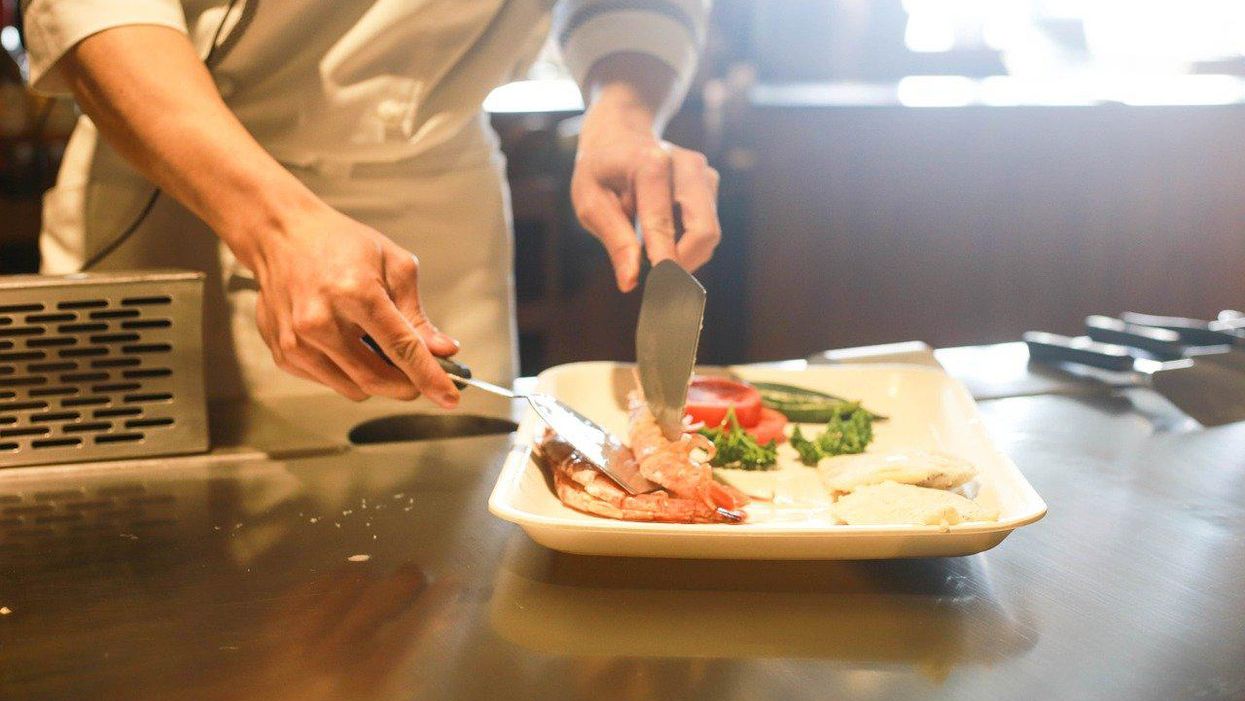Believe it or not, one of the most valuable cooking tips I've picked up after years of cooking came when someone told me that putting something on high heat doesn't necessarily translate to a good dish. Cooking is chemistry, after all. The integrity of a dish can be compromised when you're a novice who thinks high heat means something will cook "faster" or properly.
If you've had some trouble picking up the basics in the kitchen, you can thank Redditor IvetteCramer, who asked the online community,
"What is your most valuable cooking suggestion?"
"Everyone forgets acid."
"Acid. Everyone forgets acid. Lemon juice, lime zest, red wine vinegar, and so on. Salt is your most important seasoning, but acid is the unsung hero of many dishes."
Yes! I am a huge fan of lemon juice and red wine vinegar in particular. The change you see in your food once you add some acid is incredible.
"It's worth it..."
"It's worth it to spend some extra money on your equipment. Good equipment makes cooking so much easier."
"People underestimate..."
"People underestimate the reward and convenience of having a garden. At supermarkets, you have to buy whole bundles of herbs even if you only need a few spoonfuls. Herbs tend to go bad very quickly once picked so you need to find some way to use the rest of them. With a garden, you can just trim off what you need and leave the rest on the plant.
Also, fresh garden tomatoes are one of the greatest things you can ever eat. For anybody that doesn't like tomatoes, there's a great chance that you just haven't had a really good one yet."
"Had to buy..."
"Freeze leftover ingredients. Freeze fresh knobs of ginger. Tomato paste where you use one tablespoon and still have a whole tin left? Put it in an ice cube tray, then once frozen can transfer to a container. Had to buy whole celery only to use two stalks? Chop the rest and freeze it in containers. Leftover stock? You get the picture."
"At some point..."
"If you refuse to eat vegetables because you think they taste bad, that just means you aren't flavoring them properly. Add some salt, oil, and/or garlic. It's hard to overstate how versatile garlic is; other than desserts and salads, it makes virtually every dish better. If the vegetables still taste bad, add more salt, oil, and/or garlic. At some point, you'll find a flavor balance with the right amount of salt, oil, and/or garlic that works for you. And this is way healthier than just eating potato chips and candy bars all day."
Seasonings are your best friends. Invest a bit. Over time, I have amassed quite the collection––and these days I have a full cabinet.
"It is indestructible..."
"If you don't have a cast-iron pan, go buy one. It is indestructible, nonstick if you season it properly (which is really easy to do), and doesn't have the chemicals regular nonstick pans are coated with! Also makes virtually everything taste great!"
"Learn to hold..."
"Learn to hold a knife correctly. It's not difficult and it's a game-changer."
This is a fact––I have had more than a few accidents over the years as a result of carelessness.
"Trying to slice and dice..."
"Prep. Trying to slice and dice, measure, and find that little-used lid while you are cooking is the fast lane to a poorly cooked meal."
It's probably the most "boring" part of cooking, but prepping in advance will absolutely save you headaches in the end.
"If you add stock/broth..."
"If you add stock/broth to a dish, be careful if you're adding more salt. Stock and broth already taste quite salty. But sometimes the other seasonings and flavours can help to balance it out.
Speaking of salt, a lot of the time if you feel as if a dish is under-seasoned, the smallest amount of extra salt can make all the difference, so try that before adding a load of other random seasonings otherwise it may end up tasting terrible."
"How and where..."
"Think about the heat. Think about the food. What's the water content? Where is the heat touching/penetrating the food? How and where is the temperature of the food changing based upon the kind of and direction of the heat? I've been improvising based upon my intuition regarding thermodynamics for years, and seldom screw anything up as long as I approach my cooking with those basic questions in mind."
We hope those of you out there who've been struggling with your cooking game have taken some extensive notes. Cooking is one of those skills that pays incredible dividends––learn and you'll thank yourself later.
Have some tips of your own? Feel free to tell us in the comments below!
Want to "know" more? Never miss another big, odd, funny, or heartbreaking moment again. Sign up for the Knowable newsletter here.

